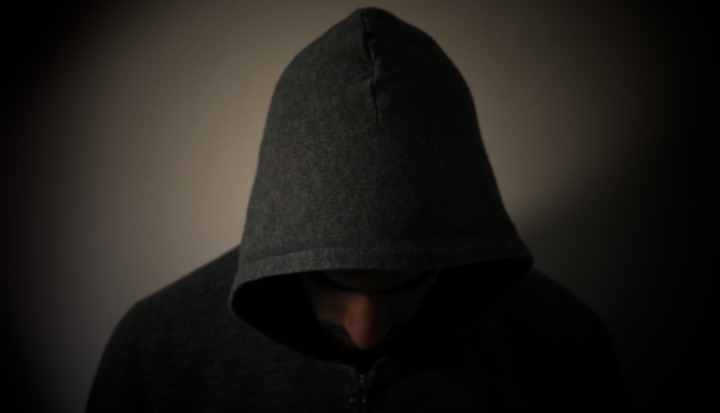On June 17, nine Christians were murdered as they gathered to pray, as Christians have been gathering every day for 2,000 years. Worshipping at a church with strong ties to the Civil Rights movement, they were killed for no reason other than the color of their skin.
And I’m angry. So angry that it’s taken me all day to find the words to write about this. Angry that we live in a world where it’s not safe for some people to go to their place of worship and study the Bible. Where people get gunned down while walking along the sidewalk, in churches, in movie theaters, and, in my hometown in upstate New York, while taking U.S. citizenship classes. Angry that more than three years after the murder of Trayvon Martin, nothing has changed—people of color are still getting killed for no reason other than their race. Angry that someday I will have to explain to my children that the world is filled with hate and I have no idea what words to use.
I am also white. I recognize that I have privilege that the murdered men and women at Emanuel African Methodist Episcopal Church did not have. That the chances of me being stopped by police or shot and killed because of the color of my skin are infinitesimally small. As Peggy McIntosh writes in her essay, “White Privilege: Unpacking the Invisible Knapsack,” “White privilege is like an invisible weightless knapsack of special provisions, maps, passports, codebooks, visas, clothes, tools, and blank checks.”
I think I often fall into a feeling of helplessness in the face of crimes like these. It hurts to even look at the news articles every morning. I tell myself that there’s nothing I can do. After all, I’m not a racist, right?
Far too often, this is the response of the majority of the white community. We condemn the crimes that have been committed. We ache for the people whose families have been destroyed. But we don’t know how to react or what to do. We are overwhelmed by the pain and by the weight of our own privilege.
Instead of letting those feelings overwhelm us, we need to use that privilege to ally ourselves with the people who are directly affected by this violence. To add our voices to theirs in the fight for justice. There are different ways to do this, but it requires a shift in our thinking and how we see ourselves.
It’s okay to feel angry
The shooting in Charleston was a tragedy. So was the killing of Trayvon Martin, Michael Brown, Eric Garner, Tamir Rice, Walter Scott, Freddie Gray, and all the other men and women who have been shot in the past year. It’s okay to feel angry. But it can’t stop there.
Acknowledge your own privilege and be willing to learn
Recognize that, as a white person, you will never know what the day-to-day life of people of color is like. That knapsack of privilege ensures that you feel safe in most situations. But that doesn’t mean that you can’t work for or understand the struggle for racial justice.
Read articles and blogs from non-white authors. Books like The New Jim Crow by Michelle Alexander or The Cross and the Lynching Tree by James Cone, a black liberation theologian—to name just two of the excellent books on racial justice out there—give you an idea of the experience of black Americans in the United States.
Get involved in your community
Reposting news article on Facebook or tweeting using hashtags like #blacklivesmatter or #icantbreathe is a start. But that’s not enough. Take an active role in the fight for racial justice. This doesn’t always mean protesting. Use whatever platform you have to be an advocate; how this looks changes depending on who you are and what networks you belong to. Some ways are small, some are larger—all are important. Here’s a couple ideas:
- Notice the language that you use. Is it equable? For example, are you calling Dylann Roof a “kid” while referring to Tamir Rice, for example, as a “young man”?
- Talk to your children, coworkers, friends, and family members. Speak out if you hear something that holds up racial stereotypes or violence. Have conversations about race and racial justice instead of keeping everything unspoken.
- Talk about racial justice in our churches. This is a social justice and pro-life issue. We should be hearing about it in sermons and talking about within our congregations.
Racism is subtle and dangerous, writes Nicki Salcedo. It’s easy to only talk about it when someone gets shot or to make it all about the presence of the Confederate flag in front of the South Carolina statehouse. But what we really need to worry about is the more insidious racism. The kind of racism where we “keep to our own.” Because we can. Because we can go to restaurants and see only white people. Go to church with only people who look like us. Know that our roommates and friends are likely to be people with the same skin color.
Salcedo ends with the following words: “Don’t tell me about South Carolina. Don’t tell me who you voted for. Don’t tell me about that red flag while ignoring the others. Tell me about your life and how we are the same and where we can find intersections. I will listen. I will believe you.”
So start conversations. Listen to people who have different experiences of the world. And also hold in mind what we have in common. A desire to change the world for the better. A commitment to justice. A shared faith. These are no small things.
Image: Flickr cc via Ricky Thakrar













